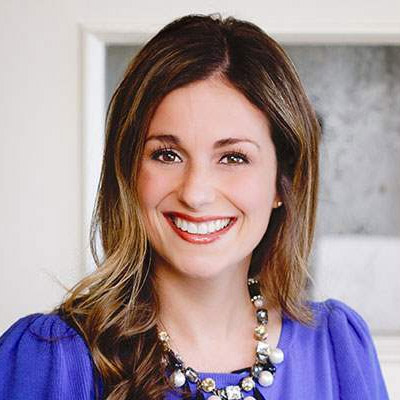Healthcare experiential marketing is an exciting option for healthcare marketers struggling to find new ways to engage with and bring value to their audiences.
The wildly changing healthcare industry presents unique challenges to its marketers:
- You can’t communicate complex subject matter in 30-second radio spots
- Healthcare reform is a political hot button
- White papers about the latest medical procedures aren’t light reading
- Mergers, acquisitions, and healthcare rebranding campaigns make brands hard to recognize
Most consumers don’t want to think about healthcare until they need it. No one wants surgery. No one chooses to have a root canal for fun
But when the time comes and the service is needed, you want your customers to think of your brand first.
That’s where healthcare experiential marketing comes in. It’s a fun and interactive way to build relationships and engage with your audience before they actually need you.
Read on to learn more about this up-and-coming trend in the healthcare industry.
What is healthcare experiential marketing?
Healthcare experiential marketing is a marketing strategy that uses in-person, live experiences and events to build authentic relationships with patients.
For traditional companies, experiential marketing might involve inviting consumers to be part of their brand instead of simply telling them about it. They do this to build loyalty and trust, potentially setting their business apart from the competition.
Some examples of “think of try-before-you-buy” experiential marketing from other industries include:
- Brand ambassadors at Costco hand out free samples of their food items as you shop
- Auto dealerships bring cars to live events so buyers can sit inside, touch, and feel the controls
- COhatch installed mini coworking spaces in local shopping malls so shoppers can see and experience the amenities of a membership
These types of experiential marketing efforts grow exponentially when your consumers share their experiences on social media.
Impressive experiential marketing statistics
Not clear on how healthcare experiential marketing can affect your marketing strategy?
Here are some convincing stats on the impact it’s had on marketing in general:
- 91% of consumers reported they would be more inclined to purchase the brand’s product or service after participating in a brand activation or experience
- 40% of consumers felt they became more loyal to the brand
- 75% of marketing convention participants felt more connected to a brand as consumers after an in-person B2C brand experience
- Experiential marketing now ranks as one of the top five marketing strategies companies currently leverage, according to Hubspot.
Tips for creating a great healthcare experiential marketing strategy
Traditional healthcare marketing is not enough to cut through the noise and reach your customers.
Experiential healthcare marketing is needed to make human connections and give your consumers a chance to see, touch, and feel what your brand can do for them.
Here are some tips to make it work for you.
Know your audience
Before beginning any marketing strategy, you must revisit your target audience.
Remind yourself of who your patients are, where they are located, how they consume information, and what their pain points are. What need do they have that your practice can help solve?
Your target audience should be running in the back of your mind as you create and decide on which healthcare experiential marketing experiences to create. This will ensure you are reaching your intended audience with your efforts.
Branding
Your experiential marketing strategy should aim to engage with patients in such a way that they feel emotionally attached and engaged with the experience.
Since branding is the ultimate marketing goal, you will want to ensure that any live experience you create as part of your healthcare experiential marketing strategy is consistent with your brand. Staying authentic and true to your brand is key to building trust with patients.
Digital marketing
Healthcare digital marketing extends the life of any experiential marketing experience.
You can use digital marketing to promote your planned experience before and to report about it after.
Digital marketing platforms, such as social media, are excellent word-of-mouth advertising for increasing your brand’s marketing ROI. Some examples of how you can extend the impact of your efforts include:
- Sharing images of happy patients (you could even share handwritten thank-you notes that patients have sent in to your providers)
- Resharing what patients have said about your practice and its physicians
- Commenting back/reacting to comments left by patients on your social media posts
Displays and signage
Carefully crafted displays and signage help create an interactive and immersive environment for your patients.
Whether you are considering parking signs, entryway kiosks, wall graphics, or the waiting room experience, displays, and other signage can enhance your healthcare experiential marketing efforts.
A successful experiential marketing display piques your patients’ interests and invites them to feel more connected to your healthcare organization.
It should be interesting, authentic, helpful, and eye-catching. The best examples provide an interactive experience they will remember for months or even years.
Events and event sponsorships
Event sponsorships allow you to use healthcare experiential marketing to engage with your patients when they are at an important event. By supporting that event, you are also showing that it’s important to you.
As a marketing agency in Indianapolis that works with many different healthcare organizations, TBH Creative gives time and money every year to support several healthcare nonprofits in the area. They—in turn—show their gratitude by listing our firm as a sponsor online and at events, etc. This exposure allows us to give back while demonstrating our commitment to the health of people in our community.
Before committing to an event or sponsorship, always consider the type of event, the promoter’s reputation, and the attendee demographics to ensure it’s consistent with your brand and will support your healthcare experiential marketing goals.
Social media
As stated above, social media can be a powerful tool to promote your brand before, during, and after your experiential marketing experience. Since 59% of the world’s population uses social media approximately two hours and 29 minutes per day, it’s a place your brand needs to be.
Just make sure you are concentrating your efforts on the same platforms your target audience is using.
Strategy partnerships
Benefits abound when you work together. Join forces with a partner brand to pool resources, share in promotions, and reach more people.
Jointly you could sponsor a local sports team, organize a health fair, or launch a run or walk supporting a cause that’s important to both brands.
7 ways experiential marketing benefits patients and healthcare practices
Instituting an experiential healthcare marketing strategy has many benefits for both patients and healthcare practices:
- It’s a fun and entertaining way to educate consumers about topics they need to know about but might not want to think about
- It solidifies the vital know, like, and trust factors consumers need when choosing where they will receive care
- Patients can get their questions answered and engage in a two-way conversation about any concerns or healthcare issues
- Patients may have a more favorable impression of your brand and remember you when they need care
- There’s time and space to go more in-depth about complex topics
- A healthcare practice’s social media following may grow after a successful experiential marketing event
- Patients and healthcare practices can engage for a more extended period
FAQs about healthcare experiential marketing
Have a specific question about healthcare experiential marketing? Check out our FAQs below for quick answers to the most commonly asked questions about this topic from marketers like you.
How much does healthcare experiential marketing cost?
The cost of healthcare experiential marketing varies depending on what your business goals and marketing strategies are. However, costs can add up quickly if your objectives aren’t clear.
Whether you want new patients at your clinic or want to increase brand awareness, set a budget, identify your target audience, and decide what you want them to do throughout your campaign’s lifecycle.
Partnering with an experienced healthcare marketing agency like TBH Creative can help prioritize your goals and work within your budget to achieve your desired results.
What kind of practice could healthcare experiential marketing work for?
Healthcare experiential marketing could work for any medical organization that wants to connect with their target audiences in creative, innovative, and meaningful ways.
This type of marketing takes a human-centric approach by immersing them in an experience that aligns with the company’s brand and vision.
Whether you use virtual reality to simulate a medical illness or sponsor a cause you care about, patients value brand interactions.
In fact, 75% of people feel more connected to a brand following in-person brand experiences, and 40% felt more loyal to the brand.
How has COVID-19 impacted experiential marketing?
For years leading up to the pandemic, experiential marketing saw major growth as companies invested in bringing people together for meaningful shared experiences.
Many industries took a hard hit from the effects of the COVID-19 pandemic. Government restrictions on travel, gathering sizes, and social distancing limited or canceled in-person brand interactions.
Due to safety concerns, companies resorted to digital experiences to increase the accessibility of experiential marketing, such as live streamed events, use of virtual reality, and live pollings.
Now, the experiential marketing landscape has gone hybrid as marketers meet consumers where they’re at. Live events are on the rise again with options for virtual attendance.
Marketers are still trying to navigate what many consider a post-pandemic world. Further, it seems that virtual and hybrid experiences won’t be going anywhere.
Increase leads with the right healthcare experiential marketing strategy
Developing a healthcare experiential marketing strategy should be an integral part of any comprehensive healthcare marketing plan.
If you need help getting started or need help auditing your current efforts to see what might be changed to get better results, consider engaging with a full-service digital marketing agency like TBH Creative.
Our team helps healthcare organizations create digital marketing strategies that expand their reach and grow their practice. Connect with us today to learn how we can help.

